Regulations for International Organ Transport: Key Policies and Practices
The regulations for international organ transport ensure that organs move safely and ethically across borders. These rules address everything from legal frameworks and ethical considerations to logistical protocols. In this article, we will explore how these regulations work, why they are vital, and what you need to know about international organ transport policies.
Key Takeaways
Efforts to standardize international organ transport regulations aim to improve cooperation among countries and enhance organ availability, with models like the EU’s cross-border program serving as successful examples.
Legal frameworks and ethical considerations are critical in regulating organ transport, with emphasis on informed consent and combating illegal practices such as organ trafficking.
Technological advancements, including improved preservation techniques and real-time tracking systems, are essential for ensuring safe and efficient transport of organs across borders.
Regulations for International Organ Transport: Key Policies and Practices
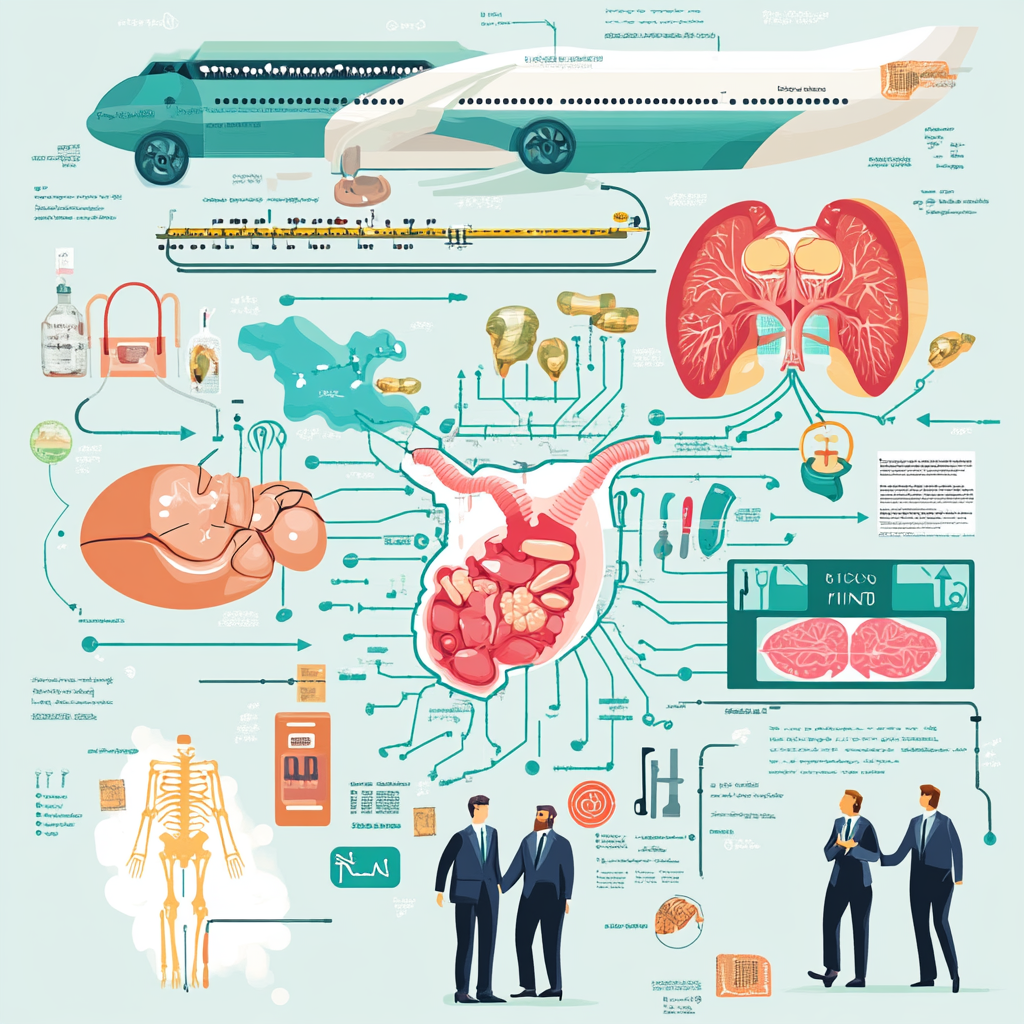
Organ donation and transplantation policies vary significantly across countries, affecting the efficiency and performance of these systems. An international forum was created to develop consensus recommendations for key legal and policy attributes of optimal organ and tissue donation systems. This initiative seeks to standardize practices globally, making international organ transport smoother and increasing organ availability for patients in need.
The European Union exemplifies successful cross-border collaboration. Its cross-border organ transplant program has improved cooperation between member states, providing quicker access to organs through standardized protocols and shared databases. These initiatives are influenced by previous international documents, like the Madrid Resolution, which continue to shape current recommendations for organ donation and transplantation.
Despite these efforts, the international organ transport system struggles with a critical shortage of available organs, worsened by demand outpacing supply. Organizations like Canadian Blood Services propose integrated interprovincial organ donation systems to improve transplant performance and reduce access inequities. Adapting these recommendations across various legal and healthcare contexts worldwide remains a key priority.
Introduction
Understanding global regulations for organ transport is vital for maintaining ethical practices and ensuring patient safety. The potential for exploitation in regions with weak regulatory frameworks highlights the need to follow international transplant guidelines. These guidelines enhance the integrity of organ donation systems globally and build trust among donors, recipients, and healthcare providers.
Effective regulation of organ transport minimizes risks linked to illegal trade and promotes safe medical practices. This blog post explores the legal frameworks, ethical considerations, and operational protocols governing international organ transport. It aims to provide readers with a comprehensive understanding of the complexities involved and the measures ensuring ethical and efficient practices.
Overview of International Organ Transport Regulations
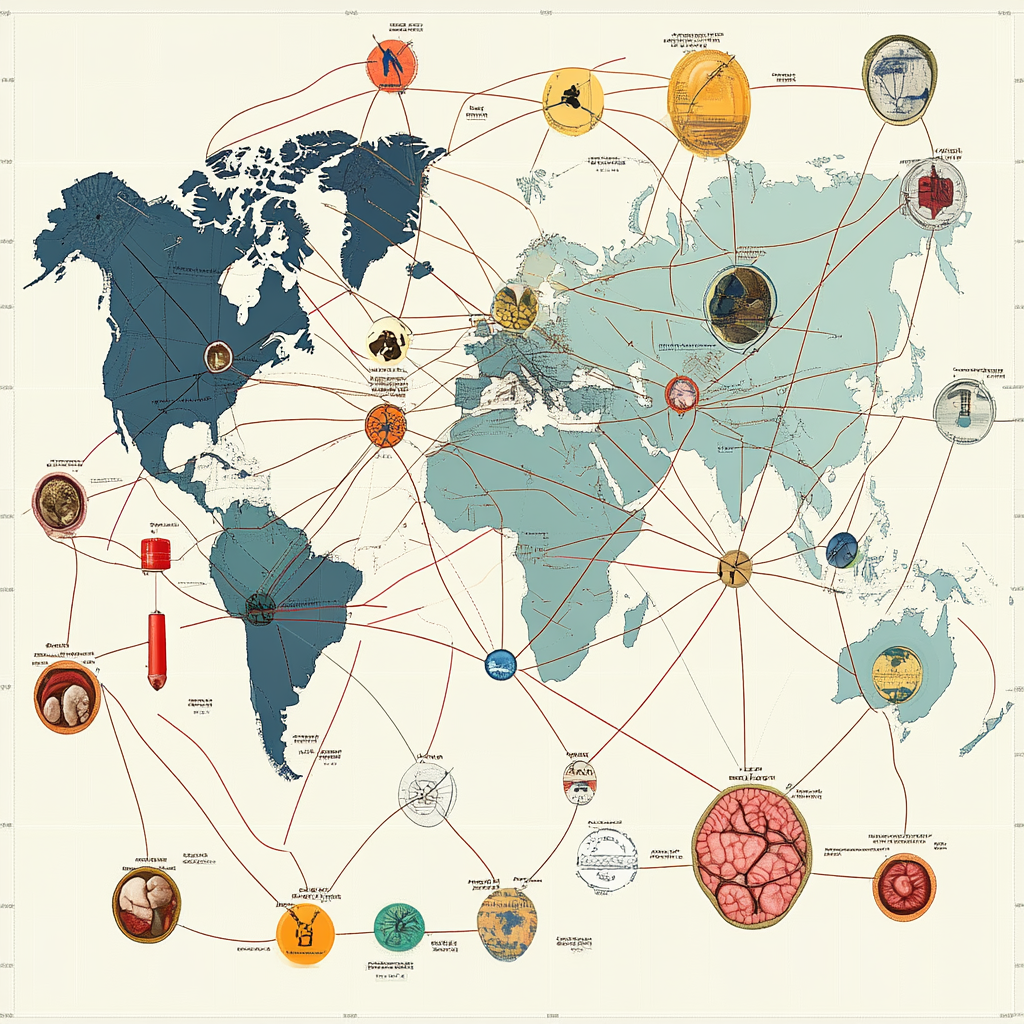
Organ and tissue donation regulations differ worldwide, resulting in varying performance levels in organ transplantation systems. Standardizing practices is essential for smoother international organ transport. The European Union’s cross-border transplant program exemplifies enhanced cooperation among member states, providing quicker access to organs through standardized protocols and shared databases.
In North America, Canadian Blood Services has proposed an integrated interprovincial organ donation system to improve transplant performance and reduce access inequities. Despite these advancements, the international organ transport system suffers from a critical shortage of available organs, with less than 10% of global organ transplantation needs being met annually.
This underscores the urgent need for continued efforts to standardize practices and enhance cross-border cooperation.
Did you know that you can get from Manhattan to JFK in under 5 minutes without driving?
Blade offers seamless helicopter transfers from our West 30th Street Lounge in Manhattan to JFK Airport in just 5 minutes from $195 per seat.
Skip the traffic and ditch the stress with Blade's year-round airport service.

Legal Frameworks Governing Organ Transport
Navigating the complex landscape of legal regulations surrounding organ transport is vital for healthcare professionals. These regulations, varying widely across countries, significantly impact the efficiency and performance of organ donation and transplantation systems. Understanding these legal frameworks ensures ethical practices and compliance with international laws.
National Laws and International Agreements
National laws, such as the National Organ Transplant Act (NOTA) and the Uniform Anatomical Gift Act (UAGA), provide a structured system for organ allocation, distribution, and transplantation. However, disparities in national laws complicate organ transport due to differing criteria and regulations. The International Donation and Transplantation Legislative and Policy Forum addressed these issues, resulting in 94 recommendations to improve organ transportation regulations.
Regular audits and monitoring of organ procurement practices ensure ethical compliance in international organ transport. These measures maintain a safe and fair system for all parties, ensuring organs are allocated and transported according to established legal frameworks.
Role of the World Health Organization (WHO)
The World Health Organization (WHO) plays a key role in shaping global standards for organ transport policies. WHO estimates that less than 10% of global organ transplantation needs are met annually. To address this gap, WHO provides guidelines to improve ethical practices in international organ transport, tackling significant global health challenges.
Consent Models: Opt-in vs. Opt-out Systems
The two main consent models for organ procurement are opt-in and opt-out systems. In the opt-in model, individuals must explicitly consent to donate their organs, as seen in the United States. Conversely, the opt-out system, or presumed consent, assumes individuals are willing to donate unless they explicitly refuse.
Approximately 45.46% of countries in the American continent use an opt-in consent system for organ donation. These differing models significantly impact donation rates and the efficiency of organ transplantation systems. Understanding them is crucial for developing effective policies that maximize donation and ensure ethical practices.
Ethical Considerations in International Organ Transport
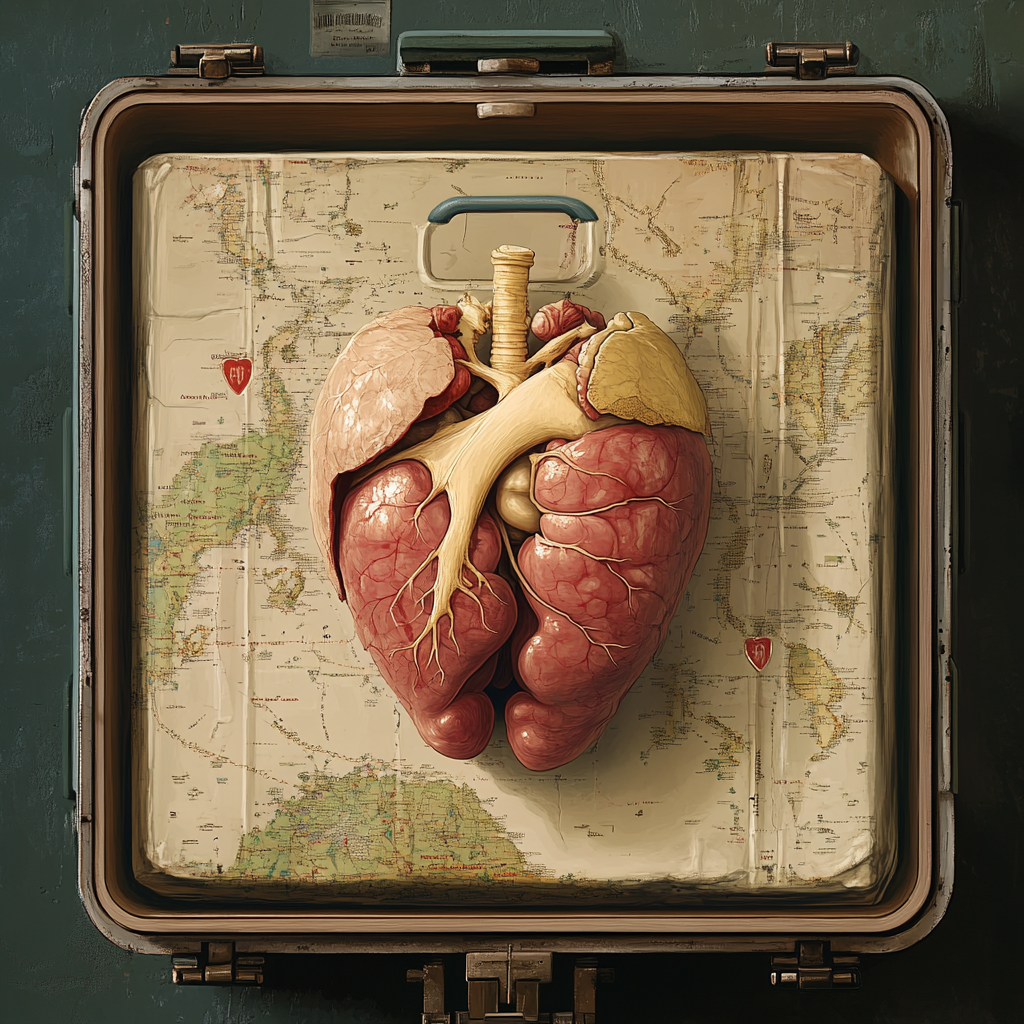
Ethical frameworks in organ transport are vital for preventing illicit activities like organ trafficking and ensuring the rights of both donors and recipients. Effective oversight of international organ transport upholds ethical standards and protects the integrity of the donation and transplantation process.
Addressing Organ Trafficking
Despite the illegality of organ trafficking, an estimated 10% of all transplants occur outside legal frameworks. Efforts to combat this include stricter laws, public awareness campaigns, and international cooperation among law enforcement agencies. Governments are urged to criminalize organ trafficking and enforce measures to protect victims.
International cooperation is crucial in addressing organ trafficking. Collaborative efforts between countries can enhance regulation, increase awareness, and protect vulnerable populations from exploitation. These measures ensure that organ donation and transplantation practices remain ethical and transparent.
Protecting Donor and Recipient Rights
Informed consent is a cornerstone of ethical organ transplantation, ensuring donors and recipients are fully aware of the procedures and implications. Legislation varies by region but typically mandates that consent be voluntary and based on comprehensive information. This ensures individuals understand the risks and benefits, fostering trust and transparency in the donation process.
Informed consent ensures donors and recipients are fully aware of the implications of their decision. Adhering to these ethical principles allows healthcare providers to protect the rights of all parties and promote ethical organ donation and transplantation practices.
Transparency and Accountability
Establishing transparent practices in organ transport builds public trust and ensures ethical handling of organs. Transparency in organ procurement and transplant procedures is vital for maintaining public confidence. Innovations in data collection and tracking technologies are poised to revolutionize the transparency and safety of organ transport.
Reporting requirements for healthcare professionals clarify ethical practices and discourage involvement in the illegal organ trade. Promoting transparency and accountability enhances public trust and ensures ethical practices are upheld in the organ donation and transplantation community.
Operational Protocols for International Organ Transport
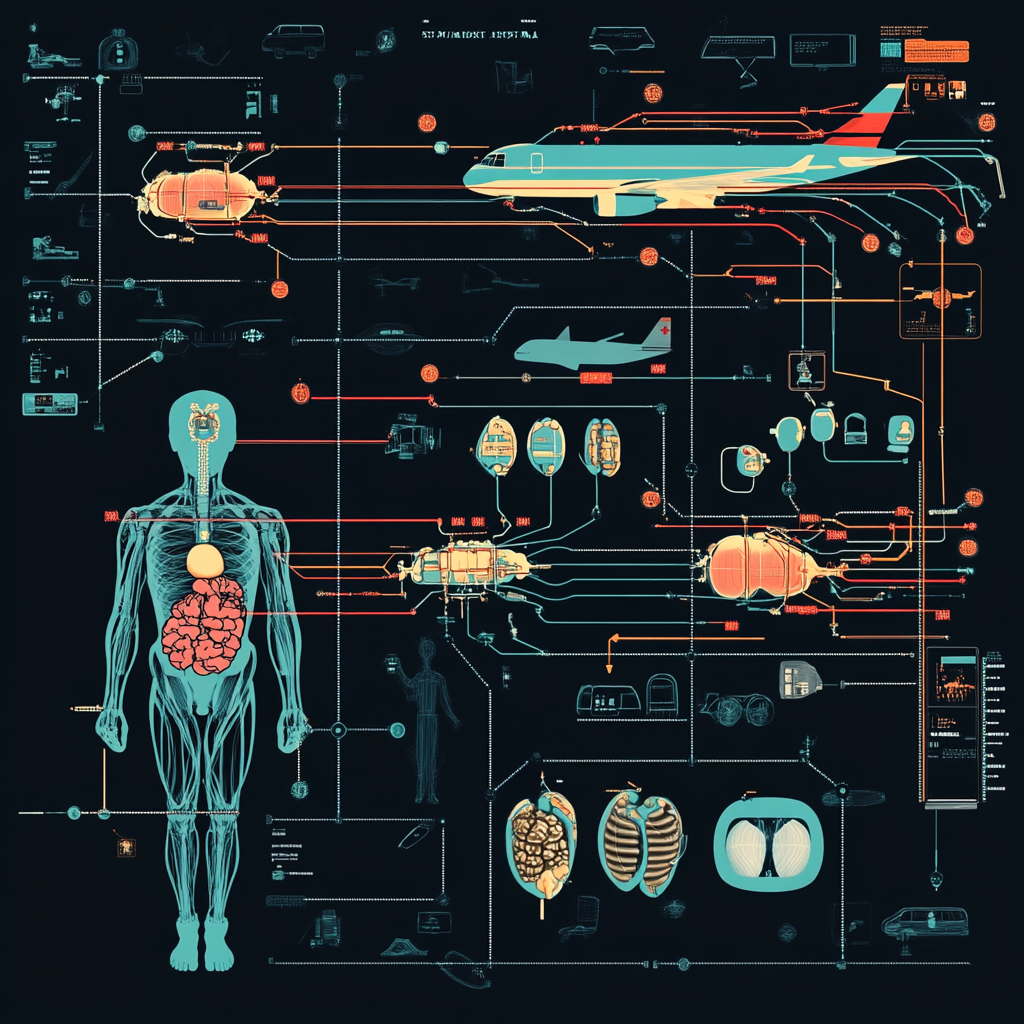
Effective operational protocols ensure the timely and safe transport of organs across international borders. The organ donation and transplantation sector is rigorously regulated by state and federal statutes governing organ procurement and transportation procedures. The disparity between organ supply and demand requires improved coordination and innovative approaches to transport organs effectively across borders.
In North America, established networks coordinate interprovincial organ sharing between Canada and the U.S. A provincial organ donation organization is exploring new approaches, such as donation after circulatory death (DCD), to address the shortage of donated organs.
Organ Procurement Organizations (OPOs)
Organ Procurement Organizations (OPOs) coordinate the retrieval and transport of organs across borders. This requires effective synchronization of policies, protocols, and communication among stakeholders. Health authorities must maintain registries to ensure organ traceability while respecting confidentiality.
The Asian Network for Organ Sharing fosters cooperation among Asian countries to enhance organ donation and transplantation society rates through shared resources and best practices. Asian countries have initiated regional cooperation for organ sharing, focusing on establishing protocols to increase organ availability and improve transplant outcomes.
These efforts underscore the importance of collaboration and standardized practices in improving the efficiency and effectiveness of organ procurement and transportation.
Logistics and Transportation Standards
Transportation of organs requires adherence to rigorous safety standards to maintain integrity during transit. These standards address factors like temperature control and timing to ensure organ viability. Efficient management of organ offers through platforms like FOEDUS-EOEO has increased availability across borders and reduced wastage.
Standardizing organ transport practices is crucial for reducing discrepancies and ensuring timely access for patients in need. Adhering to these standards ensures the safe and effective transportation of organs, ultimately improving patient outcomes.
Handling and Preservation Techniques
Controlling temperature and careful packaging, including cold storage solutions for organ transport, are essential for preserving the viability of organs during transportation. Advancements in preservation technologies, such as machine perfusion techniques, extend the viability of organs during transport. These technologies enhance transplant success rates by maintaining organ viability over longer distances.
Innovative technologies, including improved preservation methods and telemedicine, are emerging to enhance organ recovery and transport processes. Adopting these advancements improves the success rates of organ transplantation and addresses key logistical hurdles.
Did you know that you can get from Manhattan to JFK in under 5 minutes without driving?
Blade offers seamless helicopter transfers from our West 30th Street Lounge in Manhattan to JFK Airport in just 5 minutes from $195 per seat.
Skip the traffic and ditch the stress with Blade's year-round airport service.

Challenges and Solutions in International Organ Transport
International organ transport faces numerous hindrances, including legal inconsistencies, logistical difficulties, and ethical issues, requiring collaborative solutions. Collaborative frameworks enhance the efficiency and effectiveness of organ sharing among regions. Successful collaborations have led to increased organ availability and improved transplant rates.
Real-time monitoring systems track organ shipments, enhancing the coordination of international transport. Despite these advancements, the demand for organ transplantation continues to rise globally, driven by aging populations and lifestyle-related illnesses.
Addressing Legal and Regulatory Discrepancies
Many countries have developed national transplant programs, but standardization across borders remains a significant challenge due to differing capacities and regulations. For instance, patients retain their legal rights, including access to medical records, even when pursuing illegal organ transplants. Physicians, however, are not obligated to take actions that facilitate illegal transplants, such as providing referrals or medical assessments.
A system enabling the reporting of illegal organ transplant activities without revealing patient identities could help address organ trafficking. Clear records and open communication in the organ transport process foster public trust and accountability.
Managing Cross-Border Coordination
Complexities in coordinating organ transport between countries arise from differing healthcare systems, regulations, and logistical capabilities. Effective cross-border organ transport relies on clear communication channels and agreements between countries to handle these complex logistical challenges. Successful organ transport requires efficient collaboration among diverse healthcare systems and regulatory entities across nations.
Asian countries have engaged in regional cooperation to facilitate organ sharing, addressing the high demand and limited supply of organs. By fostering such collaborations, countries can improve the efficiency and effectiveness of organ transport systems, ultimately enhancing patient outcomes.
Technological Innovations
Technology plays a crucial role in streamlining the logistics and operational processes involved in international organ transport, enhancing the potential for successful transplants. Recent advances in organ transport technology, such as the use of machine perfusion, have significantly extended the viability of organs during transport.
Logistical innovations include the integration of real-time tracking systems to monitor organ conditions (temperature, humidity) during transport, ensuring timely interventions if necessary. These technological advancements not only address logistical challenges but also improve the overall success rates of organ transplantation by ensuring better preservation and efficiency in the transport process.
Case Studies of Successful International Organ Transports
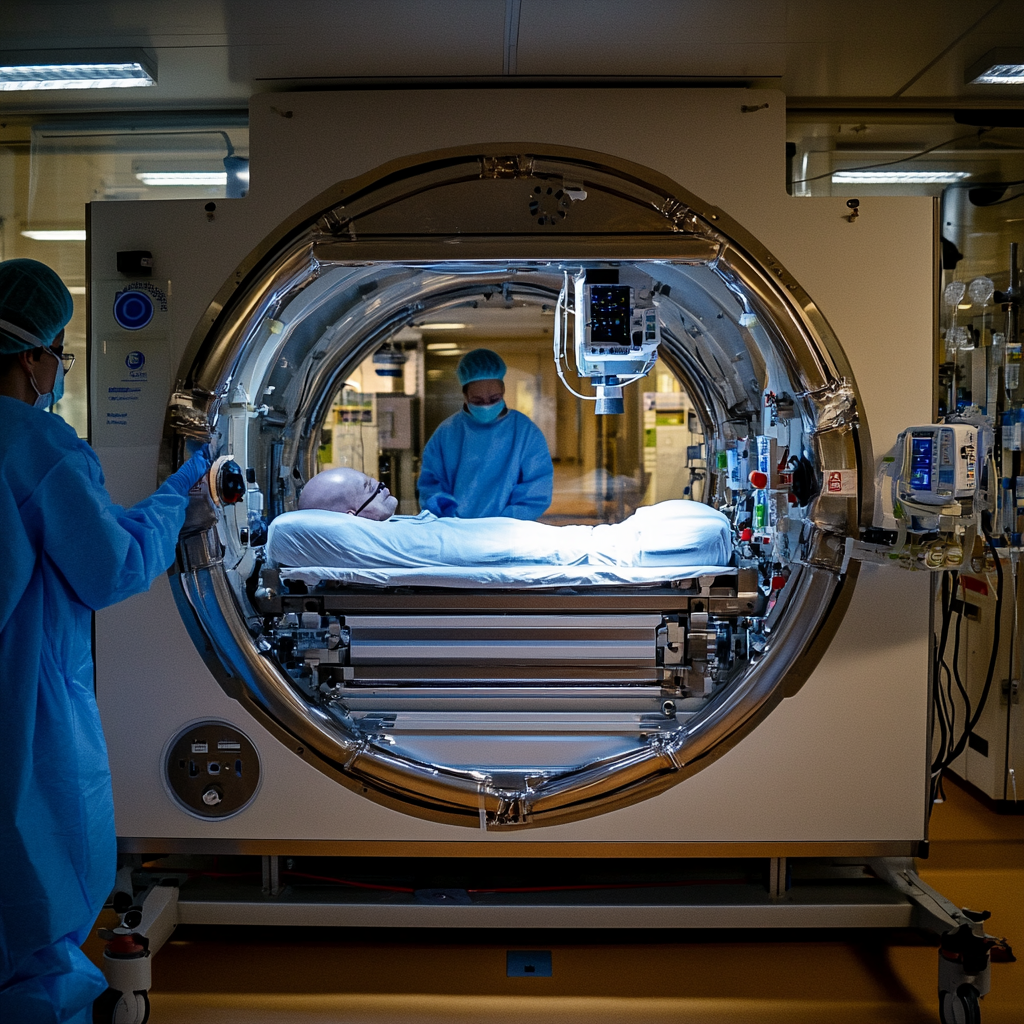
International organ sharing significantly contributes to transplant activities, allowing for a larger donor-recipient match pool. Several case studies highlight the success of international collaborations in organ transport, showcasing the positive impact of standardized protocols and regional cooperation.
These examples provide valuable insights into effective practices and the benefits of collaboration, serving as models for other regions seeking to improve their organ transport systems. From the European Union’s cross-border program to North American interprovincial sharing and the Asian Network for Organ Sharing, these initiatives demonstrate the potential of international cooperation to enhance organ availability and transplant outcomes.
European Union Cross-Border Transplant Program
The FOEDUS-EOEO platform was established to allocate organs from deceased donors across Europe, enhancing cooperation among 17 European countries. Between 2015 and 2021, 1,483 organs were offered through the FOEDUS-EOEO platform, with a 19.4% transplantation rate. Utilization rates for organs varied significantly, with livers having the highest utilization at 35.7%.
This platform has improved organ availability and matching between donors and recipients across member states, showcasing the benefits of standardized protocols and shared databases. The success of the FOEDUS-EOEO platform highlights the importance of regional cooperation in enhancing organ donation and transplantation outcomes.
North American Interprovincial Organ Sharing
North American interprovincial organ sharing is governed by a combination of national and regional regulations, which aim to improve transplant outcomes. The United States and Canada collaborate through various organ procurement organizations, which facilitate organ sharing and ensure equitable access for patients in need. Both Canada and the United States have established regulatory frameworks that promote cooperation in organ sharing, ensuring that organs are transported safely and ethically.
A prominent case study involved a multi-organ transplant between a US donor and a Canadian recipient, showcasing the effectiveness of cross-border organ sharing agreements. This collaboration highlights the potential of regional cooperation to improve access to organs and enhance patient outcomes.
Asian Network for Organ Sharing
The Asian Network for Organ Sharing promotes collaboration among Asian countries to increase organ availability and enhance transplantation outcomes. Effective regional cooperation leads to improved coordination of resources, ultimately increasing the efficiency of organ sharing processes. A prominent case study showcases the successful sharing of organs across borders within the Asian Network, illustrating the benefits of collaborative efforts.
The implications of regional cooperation point toward more harmonized international regulations and practices in organ transport, enhancing patient safety. By fostering such collaborations, Asian countries can improve their organ donation rates and streamline transplant processes.
Future Directions for International Organ Transport Regulations
Future regulations in organ transport will likely emphasize ethical standards to ensure equitable access for all populations. An international forum was established to develop consensus recommendations for key legal and policy attributes of optimal organ and tissue donation systems. These recommendations aim to streamline and improve international protocols, enhancing patient access to transplants.
As the field of organ transport evolves, continued efforts to standardize practices and enhance cooperation across borders will remain essential. By adhering to ethical principles and leveraging technological advancements, the global community can work towards improving organ transport systems and saving more lives.
Standardizing Global Practices
The Declaration of Istanbul aims to provide updated principles to guide international organ donation and transplantation practices. There is an increasing need for standardized practices in organ transport globally to ensure safety and ethical considerations. By adopting these principles, countries can work towards harmonizing their regulations and improving the efficiency of organ transport systems.
Standardized practices not only enhance the safety and ethical handling of organs but also facilitate smoother international collaboration. This, in turn, can lead to better patient outcomes and increased organ availability.
Enhancing International Collaboration
Strengthening partnerships between countries is essential to improve the efficiency and effectiveness of organ transport systems. Effective organ transport systems depend on collaboration among countries to optimize resource allocation and share best practices. Strengthening collaboration among countries can lead to improved protocols for organ transport, ensuring timely and efficient transplants.
Overall, enhancing collaboration among countries can significantly improve organ transport systems globally. By working together, countries can overcome the challenges posed by differing regulations and logistical complexities, ultimately saving more lives.
Emerging Trends and Technologies
Emerging technologies play a critical role in improving the efficiency and efficacy of international organ transport. Innovative solutions such as advanced preservation techniques and real-time tracking systems for organ transport are being adopted. These technological innovations help to minimize organ rejection rates, enhance logistical coordination, and ensure timely delivery of organs.
As the field of organ transport evolves, continued investment in and adaptation of these emerging technologies promise to redefine international organ transport practices. By leveraging these advancements, the global community can improve the success rates of organ transplantation and address the critical shortage of available organs.
Bottom Line: Regulations for International Organ Transport
The journey through the complex landscape of international organ transport regulations reveals the critical importance of legal frameworks, ethical considerations, and operational protocols. By understanding and adhering to these regulations, the global community can ensure the safety and fairness of organ donation and transplantation practices. The case studies highlighted in this blog post demonstrate the potential of international collaboration to enhance organ availability and improve patient outcomes.
As we look to the future, continued efforts to standardize practices, enhance international collaboration, and leverage emerging technologies will be essential. By working together, countries can overcome the challenges posed by differing regulations and logistical complexities, ultimately saving more lives and improving the efficiency of global organ transport systems.
FAQs about Regulations for International Organ Transport
What are the main challenges in international organ transport?
The main challenges in international organ transport include legal inconsistencies, logistical difficulties, and ethical issues. Addressing these challenges requires collaborative solutions and technological innovations.
How does the World Health Organization influence global organ transport policies?
The World Health Organization influences global organ transport policies by offering a framework of guidelines that promote ethical practices and address critical health challenges. This ensures that organ transport is conducted responsibly and equitably on an international scale.
What are the differences between the opt-in and opt-out consent models for organ donation?
The primary difference between the opt-in and opt-out consent models for organ donation lies in the requirement for explicit consent; the opt-in model necessitates individuals to actively agree to donation, whereas the opt-out model presumes consent unless individuals take steps to refuse. This distinction notably influences organ donation rates and overall efficiency in the system.
How do Organ Procurement Organizations (OPOs) facilitate international organ transport?
OPOs facilitate international organ transport by coordinating the retrieval and movement of organs, ensuring effective synchronization of policies, protocols, and communication among all involved stakeholders. This coordination is crucial for the timely and safe transfer of organs across borders.
What role do technological innovations play in improving international organ transport?
Technological innovations significantly enhance the efficiency and success rates of international organ transport through advanced preservation techniques and real-time tracking systems, ensuring optimal preservation and improved logistical coordination.
Disclaimer:
Please be aware that the content on this page has been generated by using artificial intelligence language models and may contain errors, inconsistencies, or outdated information. It is provided as-is without any warranties or guarantees of accuracy. We strongly recommend using this content as a starting point for further research. We disclaim any liability for damages or losses resulting from the use or reliance on this content.